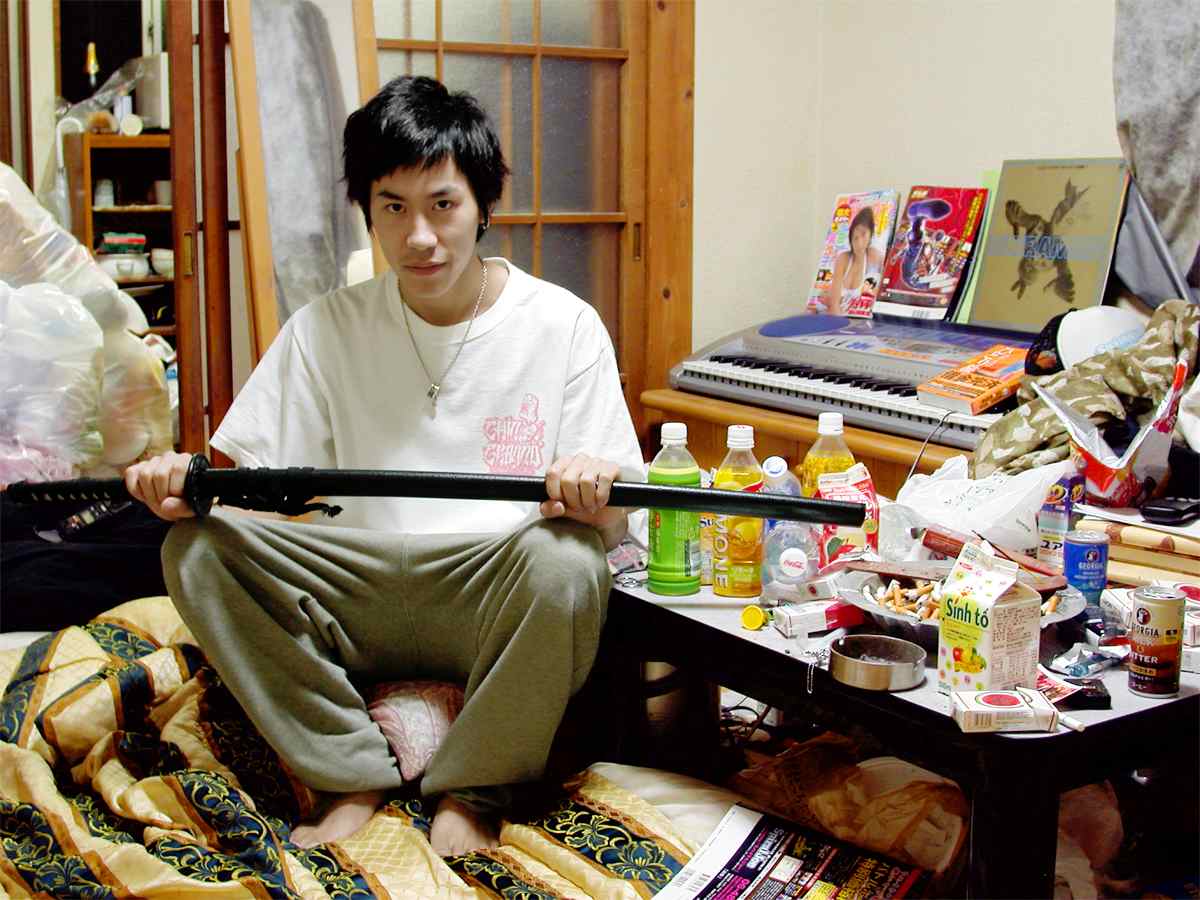|
Twixter
Twixter is a neologism that describes a new generation of young adults in United States, America and other industrialized countries who are trapped, in a sense, ''betwixt'' (between) adolescence and adulthood. This Western neologism is somewhat analogous to the Japanese term parasite single. Behavior Twixters are typically young adults who live with their parents or are otherwise not independent financially. If they are employed, they often have unsteady and low-paying jobs. They may have recently left university or high school, or recently embarked on a career. Media coverage ''Time'' published an article called "Twixter Generation: Young Adults Who Won't Grow Up", about Twixters in January 2005, putting this relatively obscure demographic in the spotlight. The article focused on upper- and middle-class Twixters whose parents could support them. The article made no distinction between people who lived on their own with their parents' help and people who lived with their parents ... [...More Info...] [...Related Items...] OR: [Wikipedia] [Google] [Baidu] |
Emerging Adulthood
Emerging adulthood refers to a phase of the life span between late adolescence and early adulthood, as initially proposed by Jeffrey Arnett in a 2000 article from the ''American Psychologist''. It primarily describes people living in developed countries, but it is also experienced by young adults in urban wealthy families in the Global South. The term describes young adults who do not have children, do not live in their own homes, and/or do not have sufficient income to become fully independent. Arnett suggests emerging adulthood is the distinct period between 18 and 29 years of age where young adults become more independent and explore various life possibilities. Arnett argues that this developmental period can be isolated from adolescence and young adulthood, although the distinction between adolescence and young adulthood has remained largely unclear over the last several decades. Emerging adulthoods' state as a new demographic is continuously changing, although some believe ... [...More Info...] [...Related Items...] OR: [Wikipedia] [Google] [Baidu] |
Neologism
A neologism Greek νέο- ''néo''(="new") and λόγος /''lógos'' meaning "speech, utterance"] is a relatively recent or isolated term, word, or phrase that may be in the process of entering common use, but that has not been fully accepted into mainstream language. Neologisms are often driven by changes in culture and technology. In the process of language formation, neologisms are more mature than '' protologisms''. A word whose development stage is between that of the protologism (freshly coined) and neologism (new word) is a ''prelogism''. Popular examples of neologisms can be found in science, fiction (notably science fiction), films and television, branding, literature, jargon, cant, linguistics, the visual arts, and popular culture. Former examples include ''laser'' (1960) from Light Amplification by Stimulated Emission of Radiation; ''robot'' (1941) from Czech writer Karel Čapek's play ''R.U.R. (Rossum's Universal Robots)''; and ''agitprop'' (1930) (a portmanteau of " ... [...More Info...] [...Related Items...] OR: [Wikipedia] [Google] [Baidu] |
Human Development
{{disambiguation ...
Human development may refer to: * Development of the human body * Developmental psychology * Human development (economics) * Human Development Index, an index used to rank countries by level of human development * Human evolution, the prehistoric process leading to the modern human species * ''Human Development'' (journal), a journal published by Karger See also * Human population growth Population growth is the increase in the number of people in a population or dispersed group. Actual global human population growth amounts to around 83 million annually, or 1.1% per year. The global population has grown from 1 billion in 1800 to ... [...More Info...] [...Related Items...] OR: [Wikipedia] [Google] [Baidu] |
Demographics
Demography () is the statistical study of populations, especially human beings. Demographic analysis examines and measures the dimensions and dynamics of populations; it can cover whole societies or groups defined by criteria such as education, nationality, religion, and ethnicity. Educational institutions usually treat demography as a field of sociology, though there are a number of independent demography departments. These methods have primarily been developed to study human populations, but are extended to a variety of areas where researchers want to know how populations of social actors can change across time through processes of birth, death, and migration. In the context of human biological populations, demographic analysis uses administrative records to develop an independent estimate of the population. Demographic analysis estimates are often considered a reliable standard for judging the accuracy of the census information gathered at any time. In the labor fo ... [...More Info...] [...Related Items...] OR: [Wikipedia] [Google] [Baidu] |
Waithood
Waithood (a portmanteau of "wait" and "adulthood") is a period of stagnation in the lives of young unemployed college graduates in various industrializing and developing nations or regions, primarily in the Middle East, North Africa (MENA) and India, where their expertise is still not widely needed or applicable. "Waithood" is described as "a kind of prolonged adolescence", and "the bewildering time in which large proportions of youth spend their best years waiting". It is a phase in which the difficulties youth face in each of these interrelated spheres of life result in a debilitating state of helplessness and dependency. One commentator argues that waithood can be best understood by examining outcomes and linkages across five different sectors: education, employment, housing, credit, and marriage. The neologism was coined in 2007 by political scientist Diane Singerman. Waithood is applicable only to college educated people who are not compelled to settle in blue collar jobs d ... [...More Info...] [...Related Items...] OR: [Wikipedia] [Google] [Baidu] |
Parasite Single
A is a single person who lives with their parents beyond their late 20s or early 30s to enjoy a more carefree and comfortable life. In Japanese culture, the term is especially used when negatively describing young unmarried women. Etymology The expression ''parasaito shinguru'' was first used by Professor Masahiro Yamada of Tokyo Gakugei University in his bestselling book , published in October 1999. The catchy phrase quickly found its way into the media and is now a well-known expression in Japan. Professor Yamada subsequently coined the related term ''parasite couple'' to refer to married children living with the parents of one partner. However, this situation occurs less frequently and the term ''parasite couples'' is less well known. This is a traditional Japanese living arrangement, though its prevalence has decreased in recent years. Dynamics This situation allows the children to live in considerable comfort, and while many save money, others spend all their income on lux ... [...More Info...] [...Related Items...] OR: [Wikipedia] [Google] [Baidu] |
Hikikomori
, also known as acute social withdrawal, is total withdrawal from society and seeking extreme degrees of social isolation and confinement. ''Hikikomori'' refers to both the phenomenon in general and the recluses themselves. ''Hikikomori'' have been described as loners or "modern-day hermits". Estimates suggest that half a million Japanese youths have become social recluses, as well as more than half a million middle-aged individuals. Definition The Japanese Ministry of Health, Labour, and Welfare defines ''hikikomori'' as a condition in which the affected individuals refuse to leave their parents' house, do not work or go to school and isolate themselves away from society and family in a single room for a period exceeding six months. The psychiatrist Tamaki Saitō defines ''hikikomori'' as "a state that has become a problem by the late twenties, that involves cooping oneself up in one's own home and not participating in society for six months or longer, but that does not see ... [...More Info...] [...Related Items...] OR: [Wikipedia] [Google] [Baidu] |
Freeters
In Japan, a is a person who is unemployed or lacks full-time employment, excluding housewives and students. Freeters average 15 to 34 years of age. Freeters may also be described as '' underemployed''. These people do not start a career after high school or university, but instead earn money from low-paid jobs. The word ''freeter'' or ''freeta'' is thought to be a portmanteau of the English word ''free'' (or perhaps ''freelance'') and the German word ''Arbeiter'' ("labourer"). ''Arubaito'' is a Japanese loanword from ''Arbeiter'', and perhaps from ''Arbeit'' ("work"). As German (along with English) was used in Japanese universities before World War II, especially for science and medicine, ''arubaito'' became common among students to describe part-time work for university students. This term was coined by part-time job magazine ''From'' ''A'' editor Michishita Hiroshi in 1987 and was used to depict a "free" worker that worked less hours, earned pay hourly instead of a monthly ... [...More Info...] [...Related Items...] OR: [Wikipedia] [Google] [Baidu] |
Boomerang Generation
Boomerang Generation, in Western culture, is the generation of young adults graduating high school and college in the 21st century. They are so named for the percentage of whom choose to share a home with their parents after previously living on their own—thus boomeranging back to their parents' residence. This arrangement can take many forms, ranging from situations that mirror the high dependency of pre-adulthood to highly independent, separate-household arrangements. The term can be used to indicate only those members of this age-set that actually do return home, not the whole generation. In as much as home-leaving practices differ by economic class, the term is most meaningfully applied to members of the middle class. Introduction The parental expectation of having an "empty nest", traditional in the United States and some other industrialized cultures, has increasingly given way in the 1990s and 2000s to the reality of a "cluttered nest" or "crowded nest". The latter term ... [...More Info...] [...Related Items...] OR: [Wikipedia] [Google] [Baidu] |
2010–2011 Greek Protests
The anti-austerity movement in Greece involved a series of demonstrations and general strikes that took place across the country. The events, which began on 5 May 2010, were provoked by plans to cut public spending and raise taxes as austerity measures in exchange for a bail-out, aimed at solving the Greek government-debt crisis. Three people were killed on 5 May in one of the largest demonstrations in Greece since 1973. On , anti-austerity activists organised by the Direct Democracy Now! movement, known as the Indignant Citizens Movement ( el, Κίνημα Αγανακτισμένων Πολιτών, ''Kínima Aganaktisménon-Politón''), started demonstrating in major cities across Greece. This second wave of demonstrations proved different from the years before in that they were not partisan and began through peaceful means. Some of the events later turned violent, particularly in the capital city of Athens. Inspired by the anti-austerity protests in Spain, these demons ... [...More Info...] [...Related Items...] OR: [Wikipedia] [Google] [Baidu] |
Economy Of Greece
The economy of Greece is the 53rd largest in the world, with a nominal gross domestic product (GDP) of $222.008 billion per annum. In terms of purchasing power parity, Greece is the world's 54th largest economy, at $387.801 billion per annum. As of 2021, Greece is the sixteenth-largest economy in the European Union. According to the International Monetary Fund's figures for 2022, Greece's GDP per capita is $20,876 at nominal value and $36,466 at purchasing power parity. Greece is a developed country with an economy based on the service (80%) and industrial sectors (16%), with the agricultural sector contributing an estimated 4% of national economic output in 2017. Important Greek industries include tourism and shipping. With 18 million international tourists in 2013, Greece was the 7th most visited country in the European Union and 16th in the world. The Greek Merchant Navy is the largest in the world, with Greek-owned vessels accounting for 15% of global deadweight tonnag ... [...More Info...] [...Related Items...] OR: [Wikipedia] [Google] [Baidu] |




